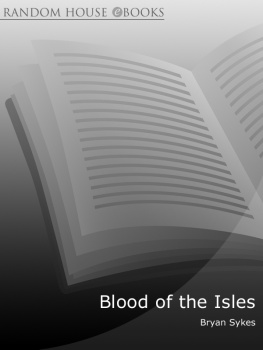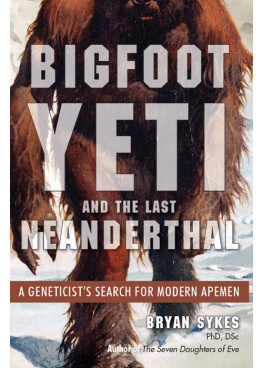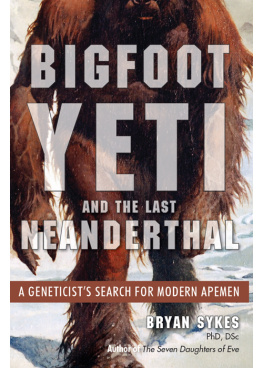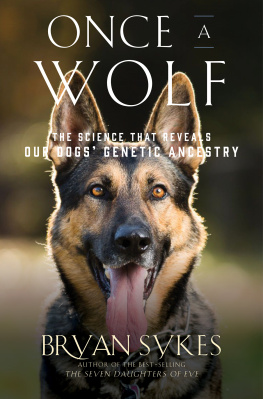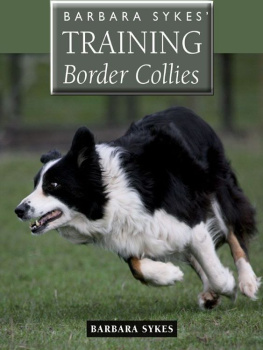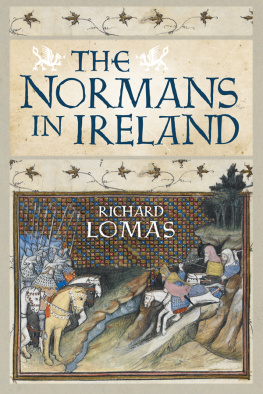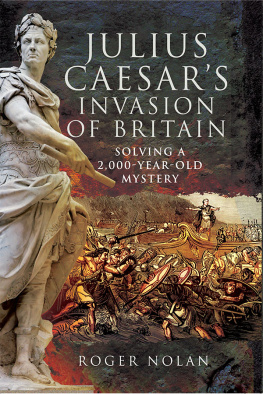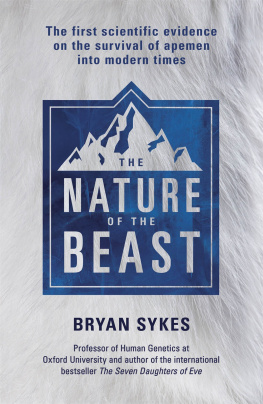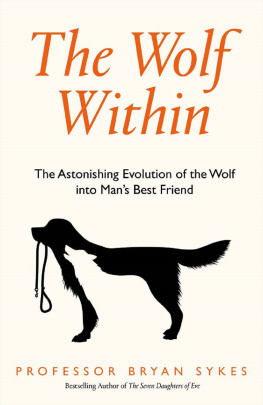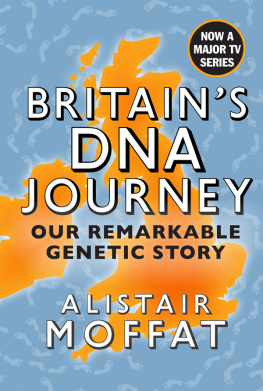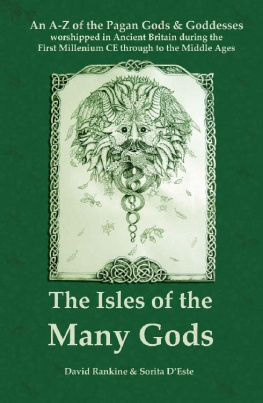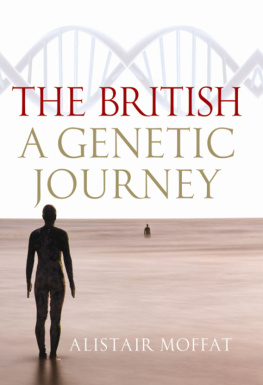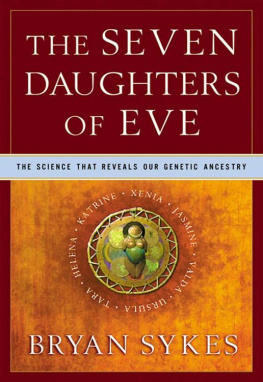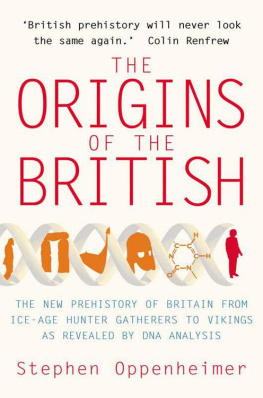About the Book
When the first Roman soldiers invaded Britain in 54 BC, the Isles were inhabited by Celtic tribes. Five hundred years later, the Romans were succeeded by the Anglo-Saxons, the Vikings and then the Normans. History has long taught us that the Celts were wiped out by the more sophisticated aggressors, but Bryan Sykes, the worlds first genetic archaeologist, found that the evidence told rather a different story.
In a major research programme, he and his team at Oxford University tested the DNA of over 10,000 volunteers from across Britain and Ireland in order to pin down the genetic make-up of 21st century Britain.
What do our genes tell us about our tribal past? Did the invaders keep mostly to themselves or are the modern people of the Isles a delicious genetic cocktail? And most importantly, where do you fit in?
A gripping detective story backed up by fascinating science, Blood of the Isles casts new light on our ancestry and reveals what our genes can tell us about our attitudes to ourselves, each other, and to our past.
Sykes scientific presentation is chatty and readable
Sunday Times
Professor Sykes has an admirably free and easy style for an academic
Daily Mail
Bryan Sykes, Professor of Human Genetics at the University of Oxford, has had a remarkable scientific career. He was the first to discover, in 1989, how to recover DNA from human remains thousands of years old and he has been called in as the leading international authority to examine several high-profile cases, such as the Ice Man, Cheddar Man and the many individuals claiming to be surviving members of the Russian Royal Family. Since then he has worked extensively on the origins of peoples from all over the world, using DNA from living people as well as from archaeological remains. He proved that the origin of Polynesians lay in Asia, not America, and discovered that the ancestors of most Europeans were hunter-gatherers from before the last Ice Age. He also showed that most Europeans trace their maternal genetic ancestry back to only seven women. On the male side he was the first to show the close connection between DNA and surnames, a discovery that is revolutionizing genealogy.
Bryan Sykes is the founder and chairman of Oxford Ancestors (http://www.oxfordancestors.com), which uses DNA to help explore your own genetic roots, including the tribal affinities described in Blood of the Isles.
He is also the author of The Seven Daughters of Eve and Adams Curse.
In a unique first, Bryan Sykes is simultaneously publishing the detailed genetic results that led to his conclusions on the internet at www.bloodoftheisles.net.
www.rbooks.co.uk
Also by Bryan Sykes
THE SEVEN DAUGHTERS OF EVE
ADAMS CURSE
and published by Corgi Books
BLOOD OF THE ISLES
Exploring the genetic roots of our
tribal history
Bryan Sykes

This eBook is copyright material and must not be copied, reproduced, transferred, distributed, leased, licensed or publicly performed or used in any way except as specifically permitted in writing by the publishers, as allowed under the terms and conditions under which it was purchased or as strictly permitted by applicable copyright law. Any unauthorised distribution or use of this text may be a direct infringement of the authors and publishers rights and those responsible may be liable in law accordingly.
Version 1.0
Epub ISBN 9781446438800
www.randomhouse.co.uk
TRANSWORLD PUBLISHERS
61-63 Uxbridge Road, London W5 5SA
A Random House Group Company
www.rbooks.co.uk
BLOOD OF THE ISLES
A CORGI BOOK: 9780552154659
First published in Great Britain
in 2006 by Bantam Press
a division of Transworld Publishers
Corgi edition published 2007
Copyright Bryan Sykes 2006
Maps by Red Lion Maps
Bryan Sykes has asserted his right under the Copyright, Designs and Patents Act 1988 to be identified as the author of this work.
This book is a work of non-fiction and based on the experiences and recollections of the author. The author has stated to the publishers that the contents of this book are true.
A CIP catalogue record for this book
is available from the British Library
This book is sold subject to the condition that it shall not, by way of trade or otherwise, be lent, resold, hired out, or otherwise circulated without the publishers prior consent in any form of binding or cover other than that in which it is published and without a similar condition, including this condition, being imposed on the subsequent purchaser
Addresses for Random House Group Ltd companies outside the UK can be found at: www.randomhouse.co.uk
The Random House Group Ltd Reg. No. 954009
2 4 6 8 10 9 7 5 3
To my son Richard, companion on very many journeys
CONTENTS
ACKNOWLEDGEMENTS
The research that led to Blood of the Isles was a team effort. I had a wonderful team both in the field and in the lab. Eileen Hickey, Emilce Vega, Jayne Nicholson, Catherine Irven, Zehra Mustafa, John Loughlin, Kay Chapman, Kate Smalley, Helen Chandler and Martin Richards all criss-crossed the Isles in pursuit of DNA, while Lorraine Southam, Sara Goodacre and Vincent Macaulay helped to tease out its secrets in the lab. I relied on many peoples generosity in the search for our origins. The directors and staff of the Scottish Blood Transfusion Service deserve special mention for their enthusiastic backing and for their tolerance as we invaded their otherwise tranquil donor sessions. The head teachers and the staff of the very many schools we visited, particularly in Wales and Shetland, I thank for the same reasons. Talking of Shetland, I must thank Beryl Smith, who organized all our visits there in advance. But, of course, none of this would have been remotely possible without the consent and co-operation of the many thousands of volunteers who agreed to having their DNA taken and analysed.
Among professional colleagues, I am particularly grateful to Dan Bradley of Trinity College Dublin for advance access to Irish genetic data, though I should stress that I have only used published material here and also that any conclusions are my own and not necessarily Dan Bradleys. So blame me and not him. I have also benefited from the publications of Jim Wilson and Mark Thomas from University College London, who have produced very useful data from parts of Britain. Among my friends and colleagues in Oxford, William James has, as usual, been a rich source of ideas and creative conversation. I must also mention Robert Young, recently of Wadham College, who introduced me to the racial mythology of the English, a subject of which I was almost completely unaware until he sent me a reprint of his work. Norman Davies, a fellow of my own college, Wolfson, was not only a source of bountiful historical references in his magisterial The Isles a History (never has a book been more thoroughly thumbed), but also helped me resolve the tricky issue of what to call my own book.
But words are not enough. Books need midwives before they see the light of day. My agent Luigi Bonomi has kept me going throughout with his irrepressible enthusiasm and I am, once again, very fortunate to have in my editors Sally Gaminara and Simon Thorogood not just consummate professionalism but great encouragement as well. Thanks too to Brenda Updegraff for her immaculate copy-editing and, as before, to Julie Sheppard who rapidly transformed my erratic handwriting into legible text.

